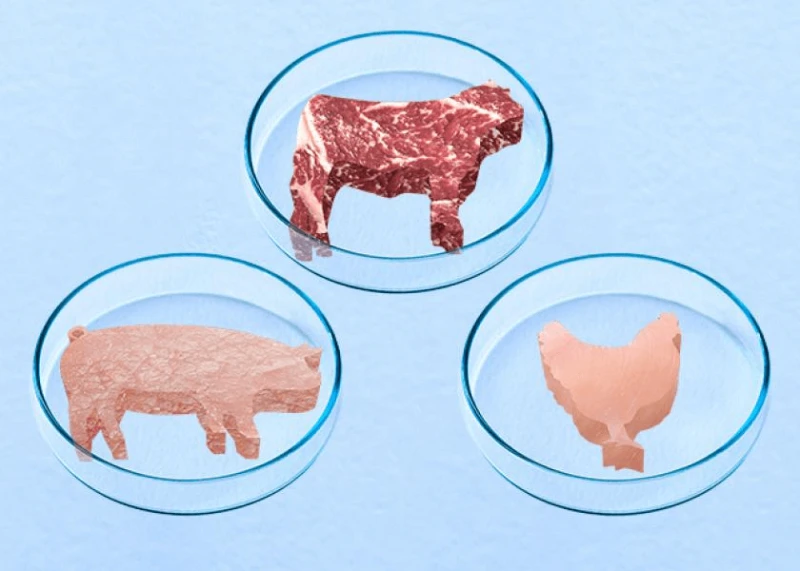USDA: Why cell-based meat is critical to address climate change
USDA: Why cell-based meat is critical to address climate change


In a historic move, [United States Department of Agriculture’s National Institute of Food and Agriculture, or] USDA-NIFA’s Agriculture and Food Research Initiative’s Sustainable Agricultural Systems (SAS) program invested in cultivated meat research in 2021, granting Tufts University a five-year $10m grant to launch the National Institute for Cellular Agriculture, the first US government-funded cultivated protein research center.
The institute coordinates cellular agriculture R&D among 32 researchers and eight universities to “serve as an accelerator for developing a cell culture meat platform through the integration of physical, biological and social sciences,” [USDA undersecretary for research Sanah] Baig said.
Current research at the institute explores economical serum-free growth media, creating cell lines for underexplored species and conducting nutritional and flavor assessments of cell-cultivated fat.
“It’s important to know what agriculture looks like today, so we can design appropriate solutions,” Baig said, citing the decrease of farms in the US from seven million in 1935 to two million in 2022, and the loss of 141 million acres of farmland “which we will never get back.”
…
With President Biden’s 2022 executive order promoting efficient protein production systems and USDA’s data-driven goals for climate and food innovation, Baig emphasized that “we will need cellular agriculture” to achieve these objectives.
This is an excerpt. Read the original post here

 | Videos | More... |

Video: Nuclear energy will destroy us? Global warming is an existential threat? Chemicals are massacring bees? Donate to the Green Industrial Complex!
 | Bees & Pollinators | More... |

GLP podcast: Science journalism is a mess. Here’s how to fix it

Mosquito massacre: Can we safely tackle malaria with a CRISPR gene drive?

Are we facing an ‘Insect Apocalypse’ caused by ‘intensive, industrial’ farming and agricultural chemicals? The media say yes; Science says ‘no’
 | Infographics | More... |

Infographic: Global regulatory and health research agencies on whether glyphosate causes cancer
 | GMO FAQs | More... |

Why is there controversy over GMO foods but not GMO drugs?

How are GMOs labeled around the world?

How does genetic engineering differ from conventional breeding?
 | GLP Profiles | More... |

Alex Jones: Right-wing conspiracy theorist stokes fear of GMOs, pesticides to sell ‘health supplements’




 Viewpoint — Fact checking MAHA mythmakers: How wellness influencers and RFK, Jr. undermine American science and health
Viewpoint — Fact checking MAHA mythmakers: How wellness influencers and RFK, Jr. undermine American science and health Viewpoint: Video — Big Solar is gobbling up productive agricultural land and hurting farmers yet providing little energy or sustainabilty gains
Viewpoint: Video — Big Solar is gobbling up productive agricultural land and hurting farmers yet providing little energy or sustainabilty gains Fighting deforestation with CO2: Biotechnology breakthrough creates sustainable palm oil alternative for cosmetics
Fighting deforestation with CO2: Biotechnology breakthrough creates sustainable palm oil alternative for cosmetics Trust issues: What happens when therapists use ChatGPT?
Trust issues: What happens when therapists use ChatGPT? 30-year-old tomato line shows genetic resistance to devastating virus
30-year-old tomato line shows genetic resistance to devastating virus California, Washington, Oregon forge immunization alliance to safeguard vaccine access against federal undermining
California, Washington, Oregon forge immunization alliance to safeguard vaccine access against federal undermining The free-range chicken dilemma: Better for birds, but with substantial costs
The free-range chicken dilemma: Better for birds, but with substantial costs ‘You have to treat the brain first’: Rethinking chronic pain with Sanjay Gupta
‘You have to treat the brain first’: Rethinking chronic pain with Sanjay Gupta
